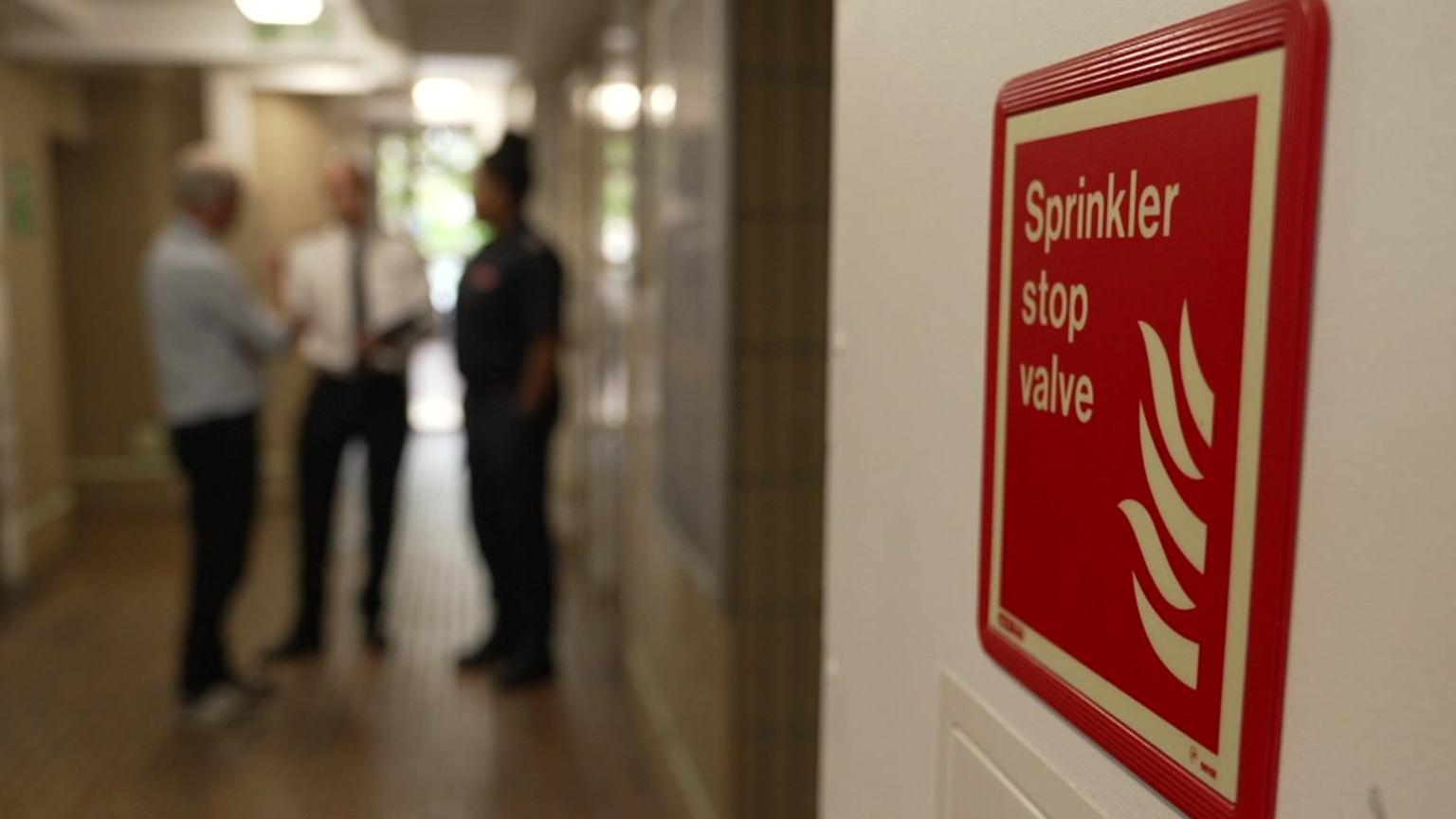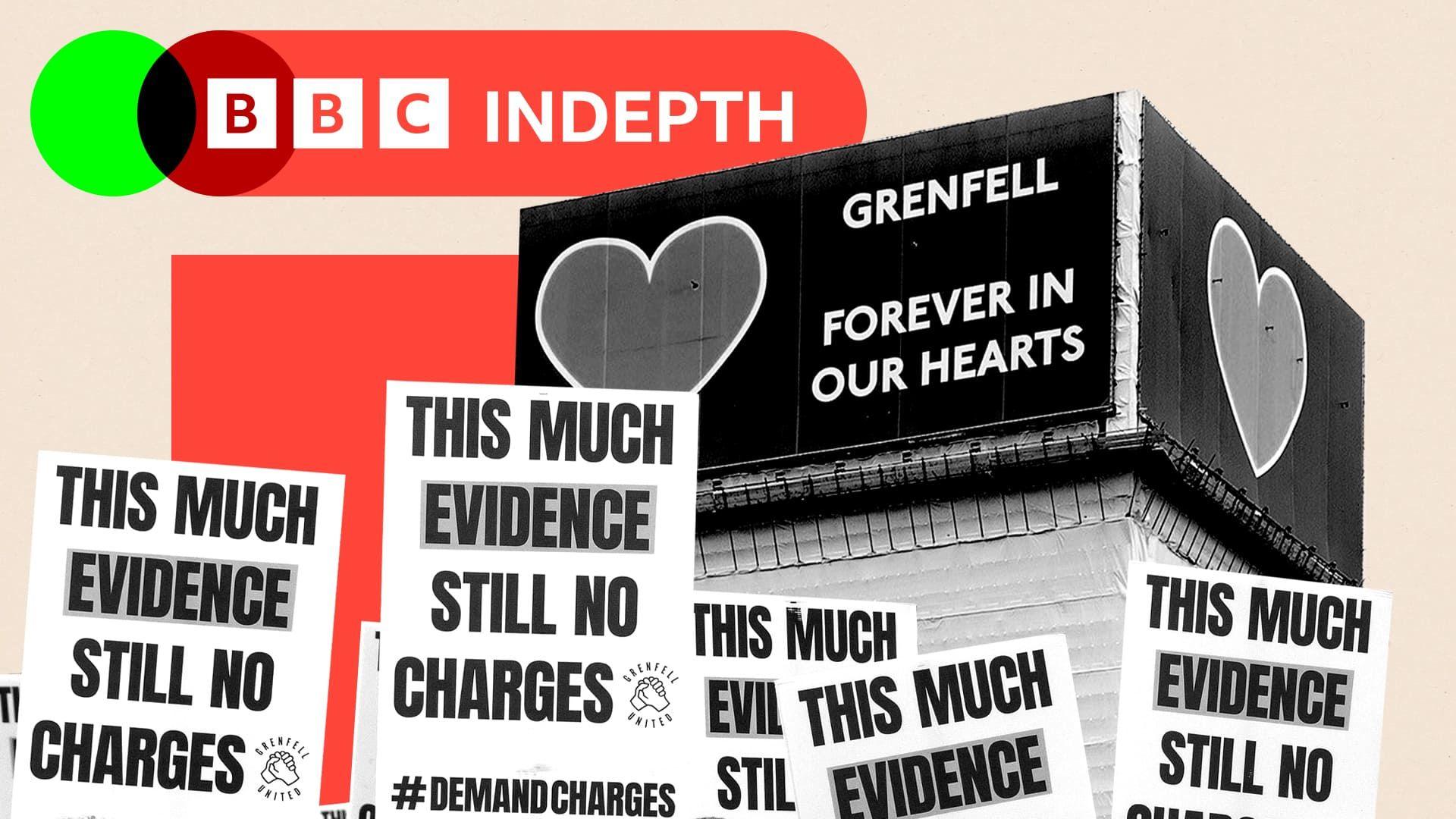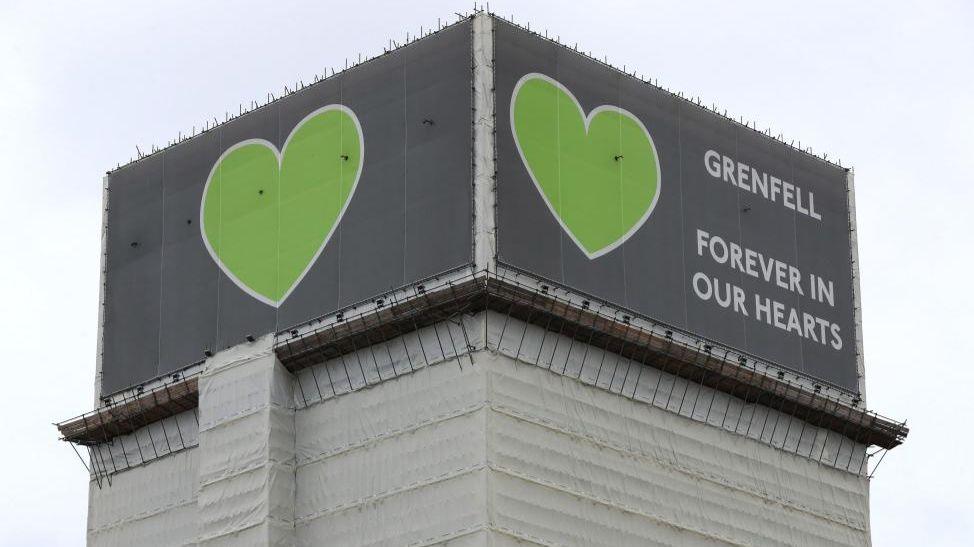Grenfell firefighter's guilt over decision to leave person behind
I wrestled with guilt for years, says Grenfell firefighter
- Published
A former firefighter who suffered post-traumatic stress disorder after attending the Grenfell tower blaze said the decision to leave a person in the building left him riddled with guilt "for years".
Speaking to BBC Radio 4's Today programme near the building in west London, Ricky Nuttall said: "The guilt of leaving a human being behind is very, very hard to come to terms with - especially when you find out that person did, in fact, die."
His comments came ahead of the publication of the final report of the inquiry into the fire, which killed 72 people in 2017.
The inquiry found that government failings, "dishonest" companies and a lack of fire service strategy contributed to the disaster.
The tower's cladding was already found to be the "principal" reason for the fire's rapid spread in phase one of the inquiry.
Warning: The following contains descriptions that some may find distressing.
Mr Nuttall described arriving at the scene of the fire seven years ago as like "organised chaos".
"It was a very, very busy scene," he said. "There were already panels from the building falling down from the outside on fire, landing on one of the fire engines that was at the base of the tower."
He added: "It was just apparent very early on that this was a very different type of fire and it was progressing rapidly."
After the fire began in a flat on the fourth floor, it spread rapidly up the outside of the tower block, reaching the top floor in a matter of minutes.
Mr Nuttall said he and a colleague were tasked with attempting to rescue someone who had become trapped by the fire on the 15th floor.
But after entering on the fourth floor, they "came into a lot of difficulties" trying to scale the building, he said.
"By the time we'd made it to the 15th floor, temperatures were in excess of 550C, we could feel our skin burning through our fire gear, we still hadn't secured a water supply, we had a tangled hose - and our emergency whistles were going off on our breathing apparatus, telling us that we were running out of air."
Mr Nuttall recounted having a "sad to say, very quick discussion" with his colleague in which they decided whether to rescue the person.
"We realised in that moment that there was no way that we could try and attempt to rescue [them] because we felt that if we tried in that scenario, there would have been three people in mortal danger rather than one."
"It's a really harsh scenario and one that I wrestled with for years post-fire... But it was the right decision from a logical perspective," he added, noting the unlikelihood of the person getting out unscathed without protective gear.
The inquiry's findings are expected to include criticisism of successive governments, the building industry and the London Fire Brigade (LFB).
Grenfell residents were told to stay put during the fire - which remains fire policy for high-rise buildings. The LFB commissioner previously told the BBC that Grenfell residents were told to shelter in place "for too long".
Mr Nuttall, who left the fire brigade a year ago to become a mental health advocate, said that the stay-put policy was founded on the principle of "a building working as it should".
He added: "There were a cataclysmic list of failings with the building - and none of that information was available to us at the time."
The former firefighter said it was "right" that questions be asked of the LFB, adding: "I think unless you're brave enough to ask those questions, things can't really move on."
But while he said the institution warranted review, Mr Nuttall recalled personally witnessing "insane levels of bravery from firefighters that were literally risking everything - going above and beyond health and safety policies to try and save as many lives as possible."
Following the publication of the inquiry's final report, LFB Commissioner Andy Roe issued a statement which said the fire service had implemented all the recommendations made in the first phase of the inquiry.
These included introducing new equipment and improved training around responding to fires in high-rise residential buildings.
He added that the LFB was "not complacent" and would continue to act on the inquiry's findings.
The LFB has not made itself available for interviews, so the BBC has been unable to ask the organisation questions about the findings of the inquiry.
Related topics
Watch on BBC iPlayer
- Attribution
- Published3 September 2024

- Published1 September 2024

